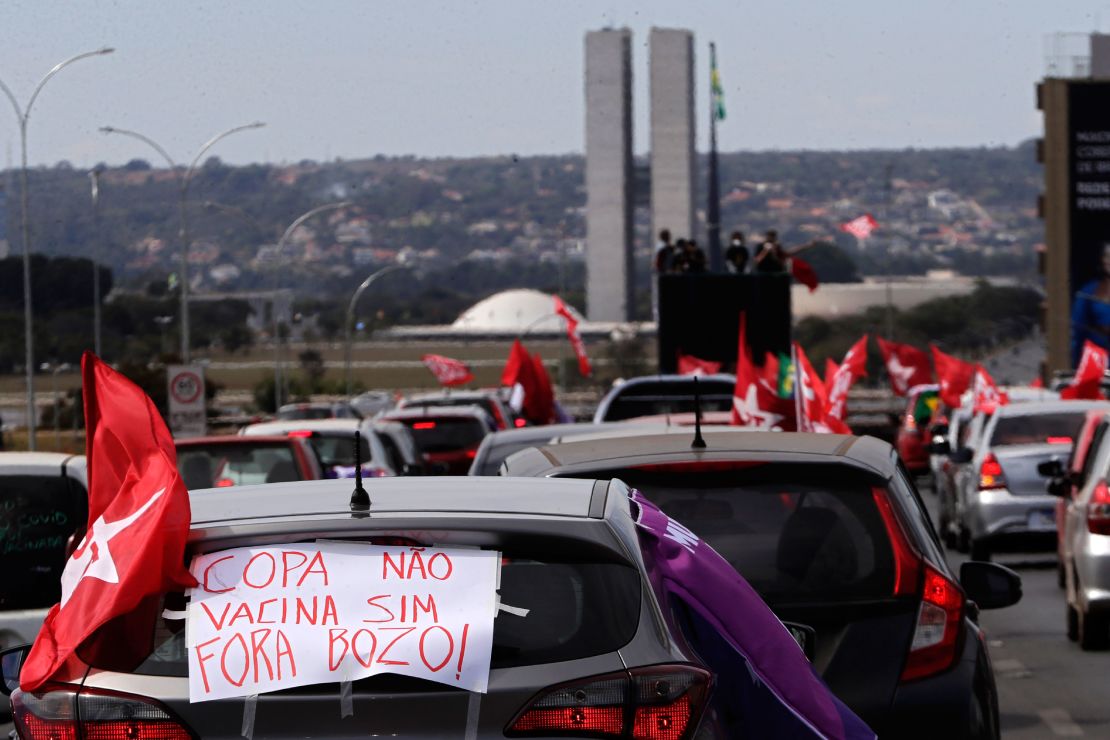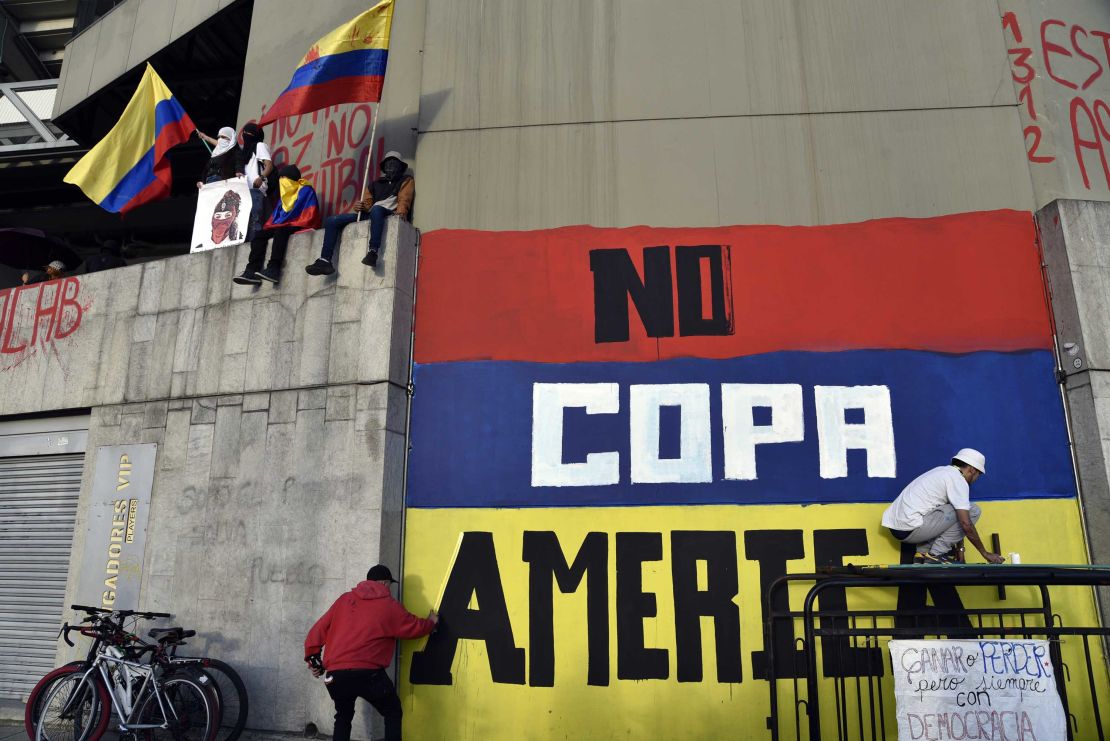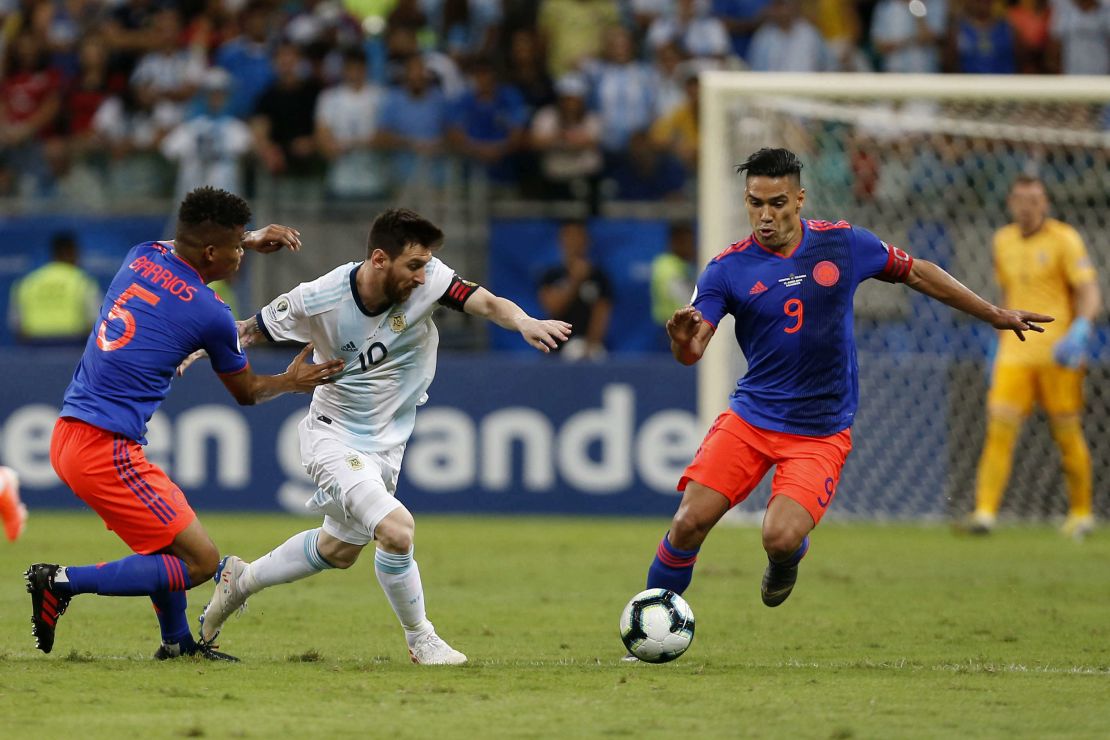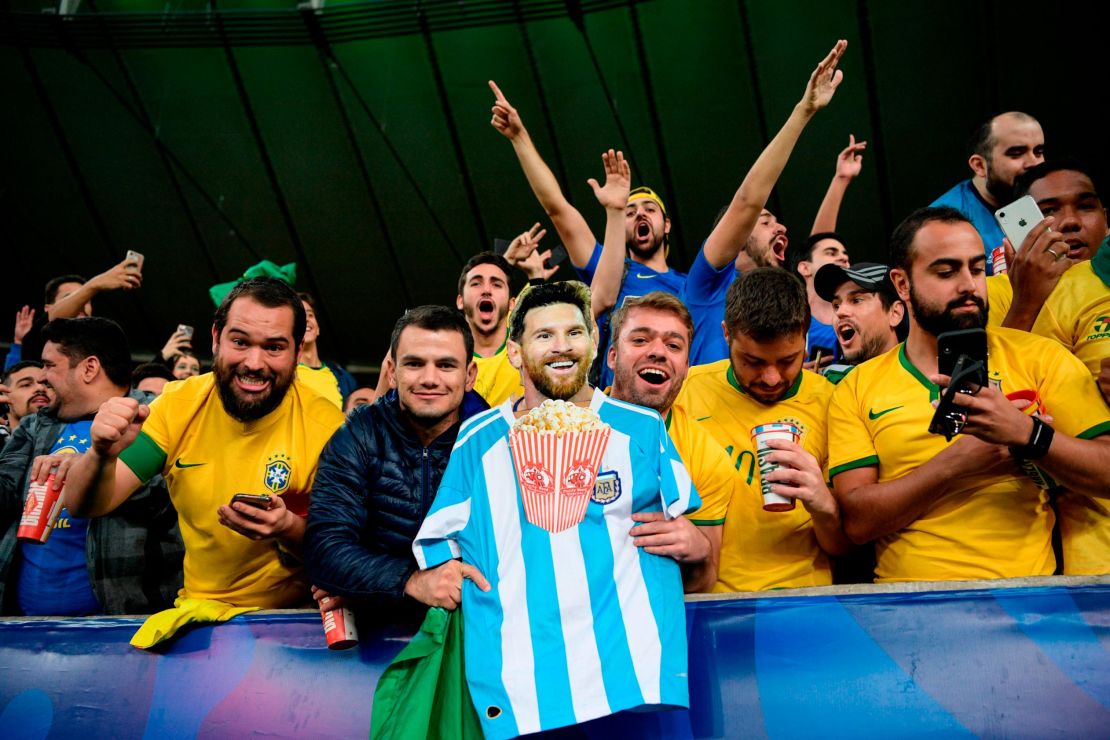The Copa America, South America’s premier football competition, due to kick off June 13 in the Brazilian capital of Brasilia, is triggering a wave of strong reactions for a sporting event.
The tournament was originally to be joint-hosted by Argentina and Colombia, but the organizers decided to pull it first from Colombia, due to the country’s widespread social unrest, and then also from Argentina, due to a resurgence of the Covid-19 pandemic.
Last week, Brazil’s president Jair Bolsonaro came to the rescue and boasted the country would see the tournament through, despite widespread opposition and the country’s struggle to contain the Covid-19 pandemic.
According to the World Health Organization, the country has recorded more than 17 million confirmed cases and 480,000 deaths. More than 70 million vaccine doses have been administered.
Whether to host the tournament or not has quickly become a political question, with Bolsonaro’s opponents pointing at the risk of spreading the virus even further, and his supporters claiming what Brazil needs now is to turn the page and move on from the pandemic.
On Thursday, Brazil’s Supreme Court gave the final green light for the tournament, voting down a motion by anti-Bolsonaro parties in Congress to suspend it.
Just two days before the vote, the Brazilian national team, the Sele??o, announced its willingness to participate, despite having voiced its open opposition to the tournament in a rare public statement.

“We are against the organization of the Copa America, but we will never say no to the Brazilian team,” the players said in the joint statement.
While health officials and public administrators are weighing the risks and benefits, for fans the calculation is more emotional.
For Federico Mansilia, a 28-year-old football coach from the outskirts of Buenos Aires, it will be the first major football tournament without his brother Ezequiel, who he says died of Covid-19 last month, aged 34.
It will also be the first without Diego Armando Maradona, the maverick Argentinian player who died in November and more than anybody else embodied Latin America’s sheer passion for the beloved game.
Even though Maradona used to play for Boca Juniors, arch-rival of Mansilia’s beloved River Plate, Mansilia still worships his memory as Argentina’s national hero.
In 2014, Mansilia spent two days on a bus from Buenos Aires to Rio de Janeiro to watch the World Cup final, which Argentina lost 1-0 to Germany.
In 2019, he and a few hundred supporters of River Plate got stuck in Bolivia as they were traveling to Peru to watch the Copa Libertadores final when land borders were shut down due to political unrest in La Paz – they managed to get to Lima on the day of the final, and again saw their team lose 2-1 to Brazil’s Flamengo.

But the love for football is stronger than any defeat, no matter how excruciating. “To go to Copa America? I’d kill to be there! The way we feel football is something else,” Mansilia told CNN.
“When Argentina plays, we are all Argentinians, we get together, no matter what’s your club, or who you stand for in politics. After the match we all go back to daily life problems, but for 90 minutes you get to forget about everything. It’s magic,” Mansillia added.
In a region that is known for deep polarization and inequality, often resulting in violent confrontations on the streets, football is one of a few universal values that everyone can embrace.
“In Brazil, you simply cannot root against the Sele??o now that they have announced they will play,” says Oliver Stuenkel, an associate professor of international relations at the Getulio Vargas Foundation (FGV) in S?o Paulo.
“I think Bolsonaro has been very strategic in this: there’s a lot of pandemic fatigue, Brazilians are desperate to say: ‘we’re back!’ even though we actually are not out of the pandemic. But it’s like bread and circus, and it will be very hard for anyone to oppose the tournament now. Personally, I am not in favor of it, but do you think I won’t watch it? Of course I will!” Stuenkel told CNN.
Others may not be as welcoming: “I am against any sport event that mobilizes a large number of people during a pandemic,” says Bruno Bigliassi, a 35-year-old restaurant owner in Barra Bonita, a small town in the Brazilian state of S?o Paulo: “It’s pure money and politics! Bolsonaro wants the Copa America to show people that it is possible to have a normal life in a pandemic.”

Renato Ribeiro, 32, also from S?o Paulo state, says that what is wrong is the timing: “People are dying without a bed, the vaccine rollout is lagging… and then the government picks up a fight to host a tournament we weren’t even responsible for, that pisses me off!”
On Tuesday, Brazilian Health Minister Marcelo Queiroga minimized the risks of the tournament becoming a super-spreader event, pointing out that all live matches will be closed to the public and that athletes will be regularly tested throughout the competition.
As with other famed sporting events upcoming this summer, such as the Olympics and the Euro Cup, the potential risk is related to fan zones and people joining together to watch the matches. Still, epidemiologist Dr. Diego Rosselli, professor of health economics at Bogotá’s Universidad del Rosario, agrees that it’s impossible to determine how many more people would get the virus because of the tournament.
“I frankly don’t think it’s convenient to keep the lockdowns anymore anyway,” he told CNN. “People are hardly following social distancing and you cannot underestimate the cost of the lockdowns: not just the economic cost, but also the increased inequality and the welfare cost which is disproportionally affecting the worse-offs. People can hold on to these rules just so much.”
Rosselli also stressed the inherent tradeoffs to the decision. “However hateful it may sound, it’s not true that lives are priceless. Of course there’s a price: For the Copa America you must decide if the economic benefit of the tournament outweighs the cost in human lives. It’s impossible to scientifically determine it, but it’s what the decision to hold the tournament is based on,” he said.
The economic cost of canceling a major competition was made clear in the run up to the Tokyo Summer Olympics, due to begin in August despite vast opposition in Japan and abroad.
For the Copa America, at least three major corporations – MasterCard (MA) and the liquor companies Diageo (DEO) and Ambev (ABEV) – have already withdrawn their sponsorship from the event.
But for small federations at the periphery of football’s dominant competitors, like Bolivia, Venezuela or Paraguay, participation in the Copa America is a key part of their revenue stream.
“The Copa America is not just an opportunity for the players to perform and get a contract abroad, it’s also the primary chance to increase the Federation’s economic exposure,” said Richard Paez, former head coach of the Venezuelan national team.

In 2019, the last time the Copa America was played, the Venezuelan federation earned $6 million directly from the tournament, plus the earnings from sponsorships and holding rights at national level.
The pandemic ravaged the finances of the region’s football landscape. CONMEBOL, the South American football confederation responsible for running the tournament, expected this edition would gross revenues for 487 million USD together with the other Club tournaments run by the confederation, flattening the deficit from last year – at least before the sponsors announced their withdrawal.
Mansilia, the dedicated football fan from Buenos Aires, isn’t thinking much about the finances. He just wants his team to win, and break a title drought that has lasted since 1993, the last time Argentina won the competition.
He thinks this year could be the one, even though arch-rival Brazil will play with the home advantage. Argentina though, will have special supporters: “I can see my brother, who supported River Plate, and Diego, who was of Boca Juniors, together in heaven. For once, they’ll be cheering for the same team and giving them strength: we must win this year,” Mansilio said.
Rodrigo Pedroso contributed to this report from S?o Paulo.



